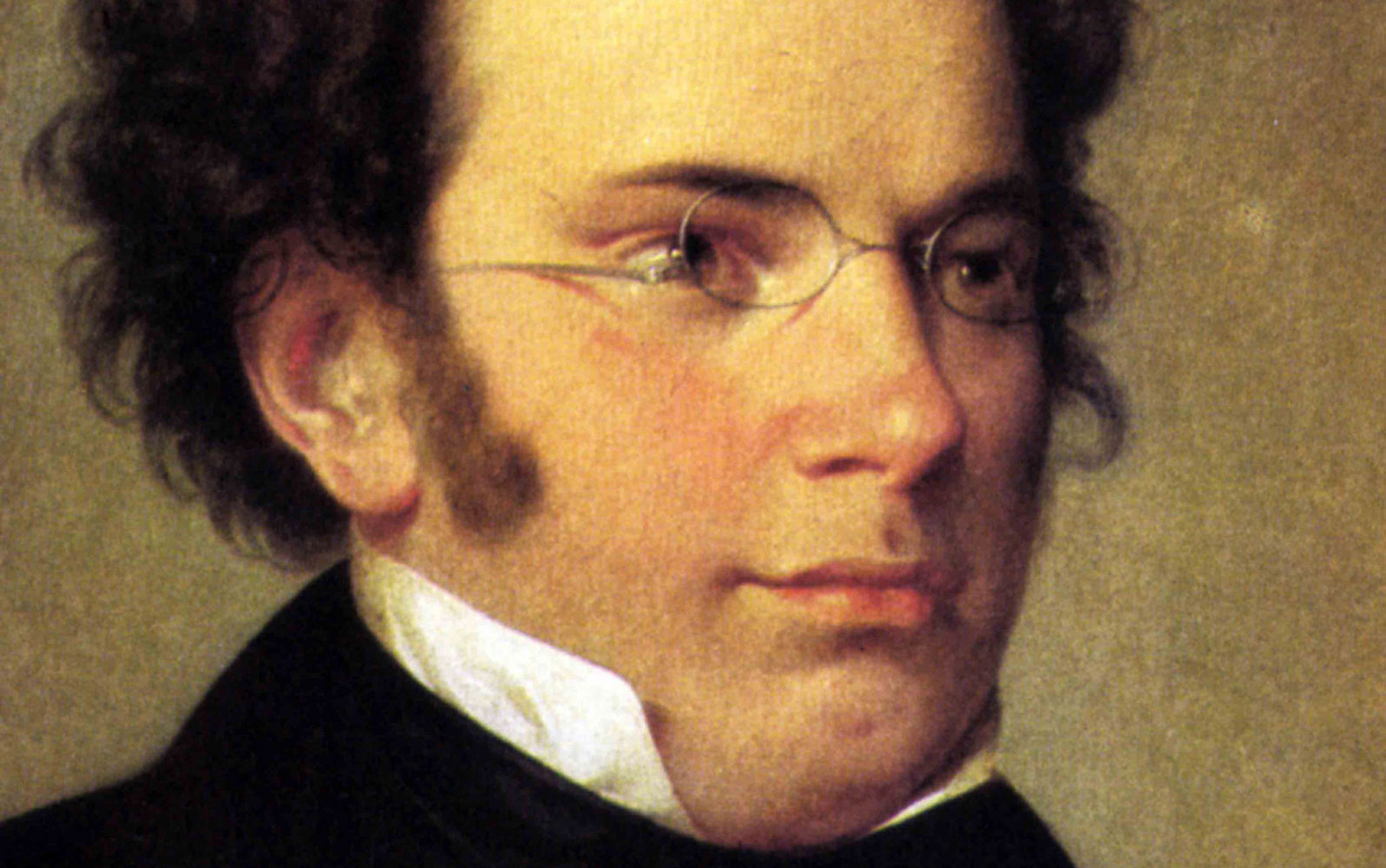
Schubert
Born: 1797
Died: 1828
Franz Schubert
Franz Schubert (born January 31, 1797; died November 19, 1828) was not the first of the Romantics but he was, as one writer put it, 'the first lyric poet of music'. The ideas came tumbling out like water from a spring. His gift for melody has, quite probably, never been equalled.
Quick Links
Franz Schubert: a biography

When Franz Schubert’s musical talent began to emerge, though it was encouraged, there were no higher ambitions than that he should grow up to be a respectful, hard-working teacher like his father, whose diligence and thrift had allowed him to buy the schoolhouse where the family lived. His early lessons were with his father and brother but Schubert was soon far beyond their modest accomplishments. By the age of 10, Schubert could play the piano, organ, violin and viola.
See also: Top 10 Classical era composers
A young genius
He became a member of the Imperial Court chapel choir in Vienna, where among his teachers was Salieri. ‘You can do everything,’ he announced to this timid, diffident little boy, ‘for you are a genius.’ Schubert began composing while at school. When his voice broke, he decided to leave and return to his father’s house to follow in his footsteps and become a teacher. (One added bonus of the profession was that it meant avoiding military service.) Schubert was singularly unsuited to the task – he could not keep discipline; all he wanted to do was write music. And write it he did. There has probably been no one in the history of music with such a prodigious facility as Schubert. In this period he composed five symphonies, four Masses, several string quartets, stage music, an opera and some of his most famous Lieder (in 1815 alone he composed no fewer than 140 songs).
Full-time composer
Taking the plunge, he finally abandoned the teaching career and took his chances as a full-time composer. He befriended the poets Johann Mayrhofer and Franz von Schober, and it was through the latter that he met the great baritone Johann Vogel, who was to champion so many of Schubert’s songs (he gave the first performance of ‘Erlkönig’). His self-discipline allowed him to produce an enormous amount of music (he wrote as much in 20 years as Brahms wrote in 50). His evenings were given over to music at the homes of his friends, where Schubert presided as the life and soul of the party – the gatherings came to be known as ‘Schubertiads’. Unlike Beethoven, he felt uncomfortable in aristocratic circles, preferring the Bohemian, intellectual, art-loving circle of Vienna.
The meagre income Schubert earned was supplemented by teaching music to the daughters of Count Esterházy at his summer estate in Zelésk, Hungary. Unlike Haydn before him, there was no permanent post for him there; and unlike Beethoven, Schubert never found a rich (and permanent) patron.
Struggles for recognition
By 1820 he had composed over 500 works embracing every branch of composition. Yet only two of them had ever been heard in public – the Mass in F (in 1814) and one single solitary song (in 1819). The music commissioned for a play and an opera were both critical flops and it wasn’t until 1821 that his first works (a volume of songs) were published.
Failure and lack of recognition now began to bite hard. Poverty and having to live on the charity of friends made him increasingly despondent. Added to this, he had to cope with the effects of venereal disease. Yet, in the midst of this, he wrote the Unfinished Symphony. The death of his idol Beethoven came as a terrible blow to him and his ambition from then on was to be buried next to him. And still, amid his awful personal predicament, some of the most divine music ever written continued to flow – the String Quintet, the last three great piano sonatas, the Mass in E flat and the song-cycle Schwanengesang.
Death and legacy
On March 26, 1828, in the Musikverein of Vienna, there was given for the first time a programme entirely devoted to Schubert’s music. It was put on by his friends, of course, but though successful, was never even reviewed. Less than eight months later, Schubert died of typhoid, delirious, babbling of Beethoven. He was 31 and was buried as near to him as was practicable, with the epitaph ‘Here lie rich treasure and still fairer hopes’. Schubert left no estate at all, absolutely nothing – except his manuscripts.
It was only by chance and the diligence of a few musicians that some of it came to light – in 1838 Schumann happened to visit Schubert’s brother and came across the great Symphony in C (the Ninth) and urged its publication; the Unfinished Symphony was not heard until 1865, after the score was found in a chest; it was George Grove (of Grove’s Dictionary fame) and the young Arthur Sullivan (of Gilbert and Sullivan fame) who unearthed in a publisher’s house in Vienna Schubert’s Symphonies Nos 1, 2, 3, 4 and 6, 60 songs and the music for Rosamunde. That was in 1867. Over a century later, in 1978, the sketches for a tenth symphony were unearthed in another Viennese archive.
The Gramophone Podcast: Schubert episodes
Joyce DiDonato on Schubert's Winterreise
Maxim Emelyanychev on Schubert and the Scottish CO
Schubert's Winterreise, with Gerald Finley and James Jolly

Gramophone Digital Club
- Digital Edition
- Digital Archive
- Reviews Database
- Full website access
From £8.75 / month
Subscribe
Gramophone Full Club
- Print Edition
- Digital Edition
- Digital Archive
- Reviews Database
- Full website access
From £11.00 / month
Subscribe
If you are a library, university or other organisation that would be interested in an institutional subscription to Gramophone please click here for further information.





